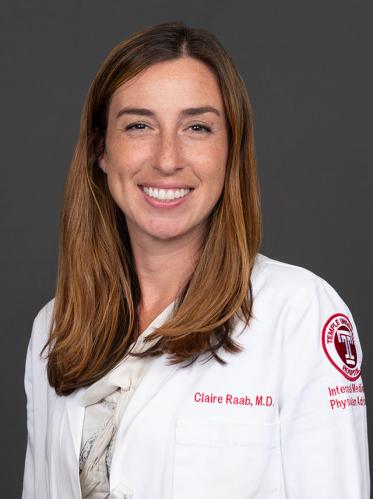
(SOURCE: Temple University)
Temple Picked to Participate in Clinical Care Implementation Initiative
By Mark Terry
March 24, 2023
Philadelphia’s Temple Health was chosen to participate in the Patient-Centered Outcomes Research Institute (PCORI)’s Health Systems Implementation Initiative (HSII). The goal is to speed the transition from healthcare research results to implementation.
Claire Raab, MD, President and CEO of Temple Faculty Physicians, told BioBuzz, “Basically the goal of PCORI is to take evidence-based research from the medical literature, much of which is funded by them, and to operationalize it. They know that when some new development is discovered in research, it can take as much as 17 to 20 years to actually be used in the office, in the clinic, in the hospital.”
Temple Health was one of 42 health systems across the country chosen to participate in the initiative. At Temple Health, the initiative is being co-led by Raab and Amy J. Goldberg, MD, FACS, The Marjorie Joy Katz Dean at the Lewis Katz School of Medicine at Temple University.
Raab notes that these research projects aren’t bench research, but healthcare-focused research projects. For example, a look through the 2,119 project titles on the PCORI website, projects include “Treatment Options for People with Posttraumatic Stress Disorder, Evidence Updates – Dissemination,” and “Comparative Autism Research Effectiveness (CARE).”

Although not a specific topic to choose from, Raab describes an example of a research project that demonstrates obese patients were able to lose more weight when they were seen by health coaches in the office versus patients who were just seen by their physicians. “So they could potentially come to us and say, ‘Build clinics that have health coaches.’”
The first part of the initiative focuses on proposals for “capacity building projects.”
Raab clarified what this means, saying, “Since we’ve been awarded to serve as a site to implement their resources and their research, they recognize that as a health system, we may not have all the pieces in place that we need to do it well. So you’re allowed to apply for an extra part of the grant to build up your inherent infrastructure so you can be as successful as possible at implementing the research.”
Each health system that is participating can receive up to $500,000 for a project in the initial stage in support of future strategies for implantation. A second funding opportunity will provide funds from $500,000 to $5 million per implementation project.
“We have a robust infrastructure,” Raab says, “but these would be additional projects that would require additional infrastructure. Then after we have built our capacity, we can then review their research and say which studies fit our health system and our patients. We get to apply for different projects, but we don’t generate the research. PCORI generates the research, and we pick from it.”
PCORI has yet to release the research projects Temple Health will choose from. The expected timeline is for the research projects to be released sometime around September to the end of the year.
PCORI describes itself as “an independent, nonprofit research organization that seeks to empower patients and others with actionable information about their health and healthcare choices. We fund comparative clinical effectiveness research (CER), which compares two or more medical treatments, services, or health practices to help patients and other stakeholders make better informed decisions.”
Authorized by Congress in 2010, PCORI has awarded more than $3 billion to fund almost 2,000 research and related projects.
Of the award, Raab says, “I think that we’ve shown we have a lot of operational agility. We also have residents and students, which I think has cast a broader scope and reach. And of course, we serve an underserved population. From a health equity standpoint, if research takes 17 years for the average patient, for underserved patients maybe it takes 25 or 30 years. They really are focused on our operations, but also our patient population.”
Raab calls the award a “marriage with the medical school and the health system. It’s both academic, but both parts of the partnership are really important.”
Raab adds, “This is particularly exciting because I think that PCORI is one of the highest foundational honors grants that you can get, and hopefully it will be the first of many to come and really set the groundwork for all the great work we can bring to this institution and to our patients.”
- About the Author
- Latest Posts
Mark Terry is a freelance writer, editor, novelist and ghostwriter. He holds a degree in microbiology & public health and spent 18 years in infectious disease research and clinical and research genetics prior to his transition to a writing career. His areas of expertise include biotechnology, pharma, clinical diagnostics, and medical practice management. He has written literally thousands of articles, as well as market research reports, white papers, more than 20 books, and many other written materials. He currently lives in Michigan with his family.








